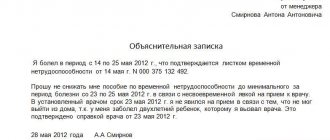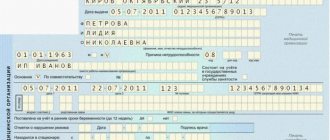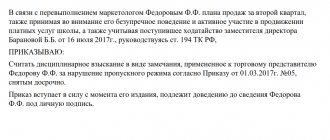Citizens who periodically check the presence of debts on the FSSP website have probably paid attention to the term “Other collections of a property nature not to the budgets of the Russian Federation.” This concept is used everywhere in enforcement proceedings. It means property claims that were satisfied by the court.
Explanation of this phrase
In order to decipher this phrase in a language understandable to the common citizen, it should initially be divided into two parts.
Let's start from the end - “not to the budgets of the Russian Federation.” There is nothing complicated here and these words are explained quite simply - when collecting something from a person, the transfer occurs not to the state budget, but to some legal or individual person.
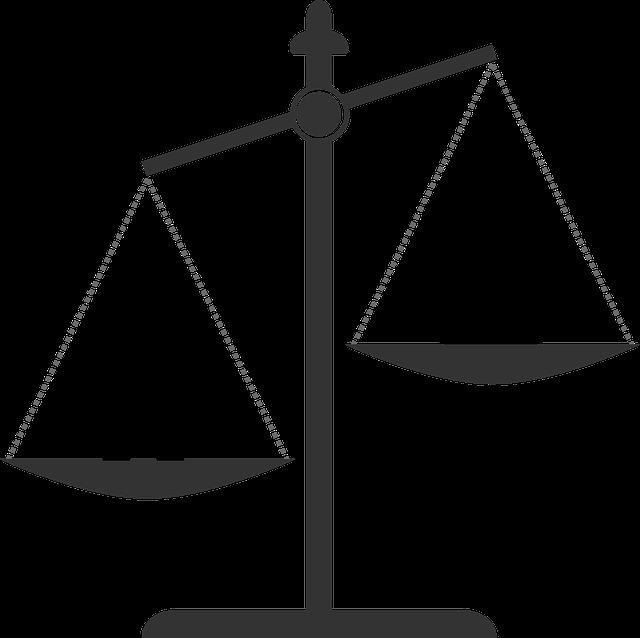
The remainder is “other penalties of a property nature.” It is understood that such a decision is made on the basis of any disputes that relate to real material wealth. That is, something that you can touch or hold in your hands. Therefore, the term does not apply to court orders that involve, for example, an attempt to obtain compensation for verbal abuse and so on.
The phrase itself, although not mentioned in the existing legislation of the Russian Federation, has become very common in the state bailiff service, which uses it in its documentation of various types.
Basic concept
To understand the meaning of the term used, we can break it down into two components. The part concerning penalties of a property nature means that the dispute arose regarding material benefits. That is, the object of execution is always material and, as a rule, has a monetary equivalent.
The part concerning the addressee in the form of non-budgets of the Russian Federation means that the plaintiffs in such cases are individuals or legal entities, and not government agencies. This means that after payment the funds will not go to the state budget.
For penalties to fall under the described concept, the following factors must be present together:
- A citizen of the Russian Federation has a confirmed debt to a legal entity or individual who is not a representative of the state.
- The debtor refuses to repay the debt.
- The judgment was not made in favor of the defendant.
- By decision of the court, an amount is collected from the defendant to repay the existing debt.
The term is not used in federal regulations. They are usually operated by bailiffs. You can find such wording on the official website of the FSSP and in the reporting documentation. But this does not mean that its use is illegal.
What exactly does this term cover?
There are quite a lot of options for court cases, the decisions made on which are often designated by bailiffs in this way. These primarily include the following:
- A court decision on a loan debt to a financial organization. For example, the defendant is required to pay off a debt to a bank that went to court after he was unable to independently solve the problem of repaying the loan taken, interest on it and other costs incurred. Naturally, the money should return to a certain legal entity, and not to the budget of our country;
- When satisfying a claim from a legal entity or individual from whom another person borrowed funds. The situation is similar to the previous one, but here they can consider disputes between two ordinary citizens, one of whom lent money to the other, and he, for some reason, does not return it;
- When considering alimony cases. Everything is also quite logical, since the decision concerns material benefits - a day that must be paid by a person who is responsible for providing everything necessary for a minor child, but does not fulfill his duties, to another person who is doing just that;
- If necessary, oblige someone to compensate for damage associated with damage to the health of another person. The result of this situation is always the need to spend certain funds on treatment. It is quite logical that the person responsible for the incident is obliged to compensate them. For example, a person who caused another to suffer various injuries in a traffic accident. Or a store sign that was not properly secured fell on a citizen;
- When requesting payment of debt for one of the types of utility payments. The question also concerns the money that a person owes for a service rendered to him;
- A positive decision related to the need to compensate for moral damage caused by an individual or legal entity;
- Forcing the return of interest, which is accrued in some situations when using funds that do not belong to a person;
- Receiving money related to concluded contracts. For example, for renting a car, real estate, when selling or buying something when one of the parties does not fulfill its obligations.

Naturally, the list does not include options related to the need to pay money in favor of one of the government bodies. Or situations not related to material wealth. For example, a family gets divorced and decides through the court exactly with whom and where their child will live. It is logical that a court ruling on such an issue cannot fall within the definition of this term, since it does not provide for the transfer of material benefits from one person to another.
Legislative definition of the term
This term is not mentioned in the Federal Law “On Enforcement Proceedings”. Moreover, it cannot be found in any federal law or code. This concept is most often used to generate statistical reporting and is used in departmental documents and by-laws of the Federal Bailiff Service: orders, instructions, clarifications, etc.
The listed documents do not define the wording being discussed. In this regard, citizens often have questions. In order to understand the essence of the wording, it is enough to list the categories of cases that fall under it (cases in this case should be understood as enforcement proceedings).
Search for alimony debtor - terms, who carries out, how to announce?
What should you do if you discover such information?
There are people who specifically go to the official Internet resource of the state bailiff service to look for information about themselves on it. Naturally, the majority do this for a reason, but on the basis of real suspicions that this particular body may be dealing with them.
What should you do if you discover information that a person is subject to other penalties of a property nature not in the budgets of the Russian Federation?
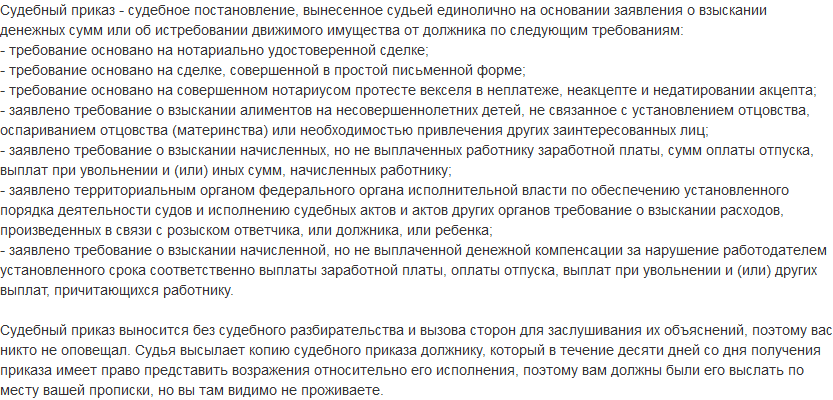
Some people do not quite correctly interpret such a proposal. For example, having found it on the bailiffs’ website, they begin to panic, thinking that collections will necessarily affect their property. That is, soon people in uniform will come and begin to take the TV and refrigerator out of the apartment, take away the car and computer. And they will do this in full view of all the neighbors.
Yes, the above situation is quite possible. But it arises only in extreme cases, when there are no other possibilities for collecting from a person his debt, which is almost always indicated by a certain amount of money in Russian rubles.
General principles of the budget system.
Let's begin to analyze the process of foreclosure on funds from the budgets of the budget system of the Russian Federation, with the general principles of the structure of the budget system itself.
The budget system of the Russian Federation is three-level and consists of:
- the federal budget and the budget of state extra-budgetary funds;
- budgets of constituent entities of the Russian Federation and budgets of territorial state extra-budgetary funds;
- local budgets.
Federal budget
and budgets of state extra-budgetary funds of the Russian Federation are intended to fulfill the expenditure obligations of the Russian Federation.
Subject's budget
of the Russian Federation (regional budget) and the budget of the territorial state extra-budgetary fund are intended to fulfill the expenditure obligations of the constituent entity of the Russian Federation.
Municipal budget ( local budget
) is intended to fulfill the expenditure obligations of the municipality.
General principles of the budget system
of the Russian Federation are defined by the Budget Code of the Russian Federation. These include:
- the principle of unity of the budget system of the Russian Federation;
- the principle of delimiting income, expenses and sources of financing budget deficits between the budgets of the budget system of the Russian Federation;
- the principle of budget independence;
- the principle of equality of budgetary rights of the constituent entities of the Russian Federation and municipalities;
- the principle of completeness of reflection of income, expenses and sources of financing budget deficits;
- principle of budget balance;
- the principle of effectiveness and efficiency in the use of budget funds;
- the principle of general (total) coverage of budget expenses;
- principle of transparency (openness);
- the principle of budget reliability;
- the principle of targeting and targeted nature of budget funds;
- the principle of jurisdiction of budget expenditures;
- principle of cash unity.
Understanding these general principles of the structure of the budget system is quite sufficient to solve the problem of foreclosure on funds from the budgets of the budget system of the Russian Federation.
Recommendations
First, carefully read the information received. This sometimes makes it possible to understand why a particular debt is imposed on a person.
The direct court decision can be found in your personal account on the State Services portal. Naturally, registration will be required. But it is in the decision made that one can read about what exactly the citizen is obliged to pay another individual or legal entity for a certain amount of money. It is clear that a copy of the court decision must be delivered to the person at his registration address. But, unfortunately, such letters do not always arrive, or the citizen is simply in a completely different place, and the people living at his old address decided not to inform him about anything.

Well, the last recommended step is not to delay the solution to this problem - it is better to contact the bailiff yourself at the contact number, make an appointment with him and come at the appointed time. And then, in fact, it’s time to figure out what, to whom, and why. And how can we finally close the question?
Reviews from people
It is quite natural that today you can find many reviews from people who have encountered the use of this term in relation to themselves or their loved ones:
- Semyon. One day I come home and my father starts shouting at me from the doorway. They say, he’s lived through it, now the bailiffs will come and take away everything, including his favorite sofa, a shame for life, and so on, in the same spirit. I waited until he screamed and asked what happened. It turns out that he accidentally found out on the State Services portal that a property penalty in the amount of more than ten thousand rubles had been imposed on me. Naturally, this also came as a surprise to me. I went to the site and carefully read the situation. It turned out that one of the mobile operators sued me - like I owe them money for failure to fulfill obligations under the contract, although several years ago I lost their card, called their office and asked for cancellation. Apparently my request was ignored, and summonses and warnings were sent to another city where we used to live, and not to a new address. I contacted the bailiff. They explained to me that I could try to overturn the court’s decision, which is what I’m doing now.
- Igor. I always recommend that if you take out loans, you check at the end that you don’t owe anything else to the bank. I somehow found myself in a very unpleasant situation. Borrowed money from the bank. Never missed payments. I paid everything on time. Well, I lived in peace. And then a notice arrives inviting me to visit the local bailiff office. I went and they showed me the decision, according to which I had to pay the bank - according to the wording described above, several thousand rubles. It turned out that I did not transfer some pennies when closing the loan. But the bank employee did not notify me about this. As a result, interest, penalties and the formation of a new debt. I had to pay. But now I took a piece of paper from them that I don’t owe anything else.
- Marina. My husband and I bought an apartment when the opportunity arose. The second, for the future. When the child grows up, we will pass it on to him. Well, it’s worth it, we’re not renting it out. Two years pass after the purchase, the husband somehow goes to the State Services website and sees a message there that a property penalty has been issued against him. Of course, this caused surprise, since the address was indicated for a new apartment. The water is turned off there, we don’t use electricity. For what? It turned out that we somehow forgot about heating, the debt for which had accumulated very serious and now we will have to pay it off. We agreed on installment payments, now we are paying them too, what should we do? But you can’t turn it off - all the walls will become damp, why do we need this?
- Matvey. I periodically check all Internet resources where there may be any fines against me. And so I went to the website of state bailiffs. I entered my last name. It turned out that there were some complaints on their part towards me. Incomprehensible penalties are indicated. And, interestingly, not towards the state. Of course, I went to find out. It turned out that it was my ex-wife who filed for alimony, calculating that I was not sending her enough money. What’s strange is that the court didn’t summon me. I didn't receive any notifications. Naturally, I appealed the decision, since my ex stated that I did not provide assistance at all, although I sent her a certain amount of money every month. Never missed a beat. Now a new meeting has been scheduled, where there is an opportunity to change everything a little. I don’t refuse to give my child money, but it’s him and as much as I really can, and not what my ex-wife wants.
- Konstantin. A very interesting situation has arisen. A father who for a long time paid monthly compensation to one person for personal injury caused during a traffic accident has died. It would seem that this issue should be closed. But no. For some reason, they put the blame on me, which is what a message appeared on the website of the Federal Bailiffs. Naturally, I was not at all happy with this decision. Made an appointment. We talked. It turns out that in order to exclude the transfer of debt by inheritance, it is necessary to submit an application to the so-called arbitration court, which should consider the request. Of course, that's what I did. I spent a little personal time, but completely corrected the situation in my own direction - I’m not to blame for what my father once did.
Judging by the reviews, you shouldn’t immediately panic, thinking that nothing can be changed. Maybe. In some situations it is possible to appeal a court decision. But in others, you have to pay. How? This can be agreed upon during a personal conversation with the bailiff responsible for the execution of the decision.





